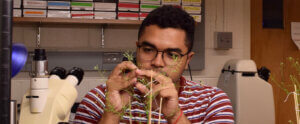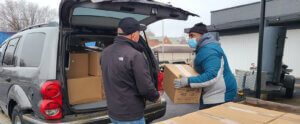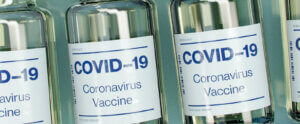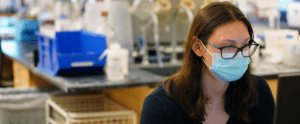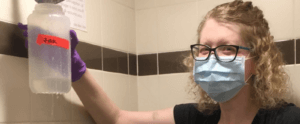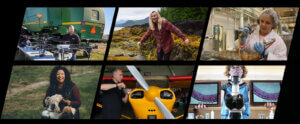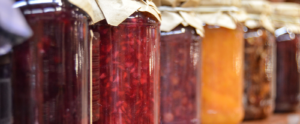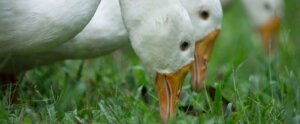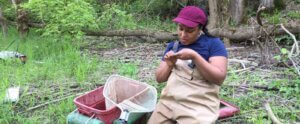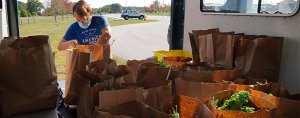Site Archive
“My community, friends and peers are the reason I am making it through graduate school,” Katherine Rivera-Zuluga said. “One hundred percent.”
Rivera-Zuluga is a Ph.D. student in botany and plant pathology. She is one of four Colombian students currently pursuing a doctorate in the plant sciences and one of many Colombian students in the college and university at large. This community of countrymen and women has been a key support system for Rivera-Zuluga and many others, especially during the COVID-19 pandemic.
“We were all away from home in the middle of a pandemic where everyone is getting sick and is scared,” she continued. “It was hard and depressing, but we gathered together when we could, we tried to keep each other safe in many ways. Most of us didn’t travel home over Christmas, but we had each other.”
How do you make access to scientific knowledge more democratic for people around the world?
How can we be inclusive of diverse groups in the creation of that knowledge?
And, finally, how can we equitably transfer that information to those who speak different languages, may not read or write or live in hard-to-reach areas of the world?
These questions have guided the organization Scientific Animations Without Borders (SAWBO) since its founding in 2011. Co-founded by newly hired agricultural sciences education and communication assistant professor Julia Bello-Bravo and Barry Pittendrigh, Purdue’s Osmun Endowed Chair of Urban Entomology and director of the Center for Urban and Industrial Pest Management, SAWBO has created a research and highly scalable outreach program that uses the power of animation to disseminate scientific knowledge around the world.
When the COVID-19 pandemic began and the technologies necessary to combat it came into focus, testing was immediately identified as being top on the list.
Mohit Verma, assistant professor of agricultural and biological engineering (ABE), had been working for years on developing a diagnostic tool to detect Bovine Respiratory Disease (BRD) in cattle using nasal swabs. Verma and his colleagues identified nucleic acids specific to different pathogens that cause the disease and developed a paper-based testing device that was cheap to manufacture, accessible and accurate.
Jayson Lusk, agricultural economics professor and department head, breaks down why and how COVID has led to an increase in domestic food prices. In the Q&A below, he answers some commonly posed questions.
READ MORESometimes nature mirrors society in eerie in unexpected ways. That is happening now with Indiana’s songbird populations, which are suffering from a yet unidentified illness.
Indiana’s Department of Natural Resources (DNR) and experts like forestry and natural resources professor Barny Dunning advise these precautions to slow the spread of this illness. This includes taking down birdfeeders, birdbaths and any other man-made devices for attracting birds.
Milk, meat, fresh cheese, vegetables, fruit and more packaged into a single box are helping Indiana families survive job loss, higher food prices and other pandemic-related events affecting food availability.
As part of the Coronavirus Food Assistance Program, the United States Department of Agriculture (USDA) collaborated with distributors to package and transport fresh produce, dairy and meat products to food banks, community and faith-based organizations.
READ MOREFor thousands of years, humans have altered — often negatively and inadvertently —microbial communities in a quest to improve agricultural crops. In recent years, knowledge…
READ MORETechnology doesn’t stand still, which means neither does Agriculture Information Technology (AgIT).
As a department that supports a technological operations throughout the College of Agriculture and Extension offices, AgIT is always innovating, always thinking at least a few steps ahead.
READ MOREStarting in a new position during the middle of a pandemic is challenging. For Caitlin Proctor, assistant professor of agricultural and biological engineering (ABE) and environmental and ecological engineering, it was also in keeping with an already tumultuous year.
Proctor began in her position this semester, after two years as the Lillian Gilbreth Postdoctoral Fellow in the College of Engineering. During her fellowship, Proctor researched drinking water and the ecological and biological interactions that affect its safety.
READ MOREThanksgiving, like most of 2020, is going to be different for families this year. Food prices mirror the uncertainty and volatility that the global pandemic introduced to general life.
“While many of the food prices have come back down off the spikes in late spring and early summer, it remains the case that retail food prices are significantly higher now than at the same time last year. In October (the last data available), prices of food at grocery were 4 percent higher than the same time last year,” Jayson Lusk, agricultural economics department head and professor, said. “It’s been almost a decade, since 2011, that we observed this rate of annual food price inflation.”
READ MORECrises often leave families feeling helpless and out of control. The COVID-19 pandemic is no exception as Hoosiers face the loss of jobs, resources, life experiences and social contacts. With the help of Purdue Extension, Purdue’s College of Health and Human Sciences is helping families cope with change and even find positivity during the pandemic.
READ MOREAs a professor of agricultural economics at a major research institution, Nicole Olynk Widmar relies on Purdue’s high-speed internet. But once she leaves campus and arrives home about 15 minutes later, Widmar counts herself lucky to even connect to the internet. Zoom can, at times, be a pipe dream.
READ MORE“There’s an element of gambling to lumber,” said Mark Smith. “Lumber is a commodity market so it’s up and down all the time.”
Purdue alumni Mark and Jenny Smith faced the fluctuations for 31 years as suppliers of lumber and plywood, but never experienced shifts as abrupt as those in 2020. Within a span of months, the owners of Great Lakes Forest Products, Inc. saw their expanding business reduced to a bare-bones crew before unexpectedly needing to hire a record number of employees.
READ MORE